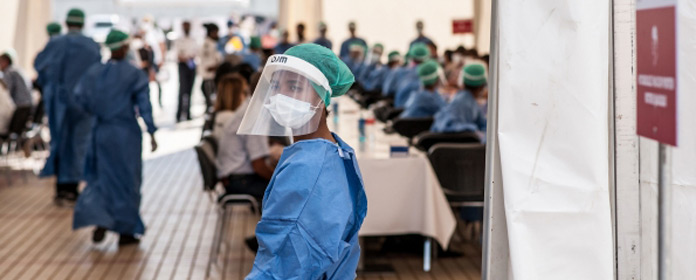"Se prevén entre 1,5 y 2,4 millones de fallecidos en África, dependiendo de si se reduce el contacto físico en un 75% o un 45%"
David Soler Crespo, investigador junior del NCID del Instituto Cultura y Sociedad, analiza en Africaye.org el impacto del coronavirus en el continente

FOTO: Cedida
“El coronavirus ha infectado ya a la práctica totalidad de los países de África —54 de 55, todos menos Lesoto— en mayor o menor medida -1.800 muertes confirmadas- y amenaza con cambiar estilos de vida”. Así lo asegura David Soler Crespo en un artículo divulgativo publicado en Africaye.org. Soler es investigador junior del Navarra Center for International Development (ICS), que se enmarca en el Instituto Cultura y Sociedad (ICS) de la Universidad de Navarra,.
“El continente africano ha sido rápido y veloz a la hora de adoptar medidas, pero a pesar de ello en la última semana todavía crecieron en un 60% los casos y la Organización Mundial de la Salud (OMS) asegura que África será el próximo epicentro de una pandemia”, explica. Con todo, recuerda que hasta cincuenta intelectuales africanos han rechazado este augurio en una carta.
Por otro lado, subraya que la Comisión Económica para África de las Naciones Unidas (UNECA) prevé, en el mejor de los casos, que haya 300.000 muertos y más de 122 millones de personas infectadas, un 10% del total de la población. “En el peor de los casos, sin medidas, se infectaría el 100% de la población africana y morirían 3,3 millones de personas”, comenta.
Según David Soler, los dos escenarios más posibles de los listados serían aquellos en los que se prevé entre 1,5 y 2,4 millones de fallecidos, dependiendo del grado de distanciamiento físico, si se reduce el contacto en un 75% o un 45%.
“A pesar de todo, no todos los países se verían afectados de igual manera -argumenta-. En un continente de 55 países, las fases del coronavirus avanzan a ritmos dispares y unas naciones son más vulnerables que otras”.
Ventajas e inconvenientes para afrontar la pandemiaSoler indica que África parte en desventaja en ciertos aspectos a la hora de afrontar la pandemia, si bien otros factores hacen que el continente africano vaya un paso por delante de otras regiones del mundo.
En cuanto a las primeras, habla de que el continente tiene gran experiencia en epidemias y otros enfermedades infecciosas; la sociedad civil está muy concienciada de las consecuencias de un virus letal y existe una gran cantidad de ONG que han trabajado en el terreno; se han adoptado medidas de prevención tempranas en la gran mayoría de los países; y que tiene la población más joven del mundo, con una media de edad de 18 años y solo un 3% de mayores de 65 años.
En lo que respecta a las desventajas, se refiere a la falta de medios sanitarios para poder afrontar una epidemia con garantías; la alta densidad de población en las ciudades; la falta de acceso a agua y saneamiento, que dificulta tomar medidas básicas de higiene; y la precariedad del empleo, que obliga a las personas a salir a trabajar cada día.
El artículo original se puede consultar aquí, publicado bajo licencia Creative Commons BY-NC-ND.




